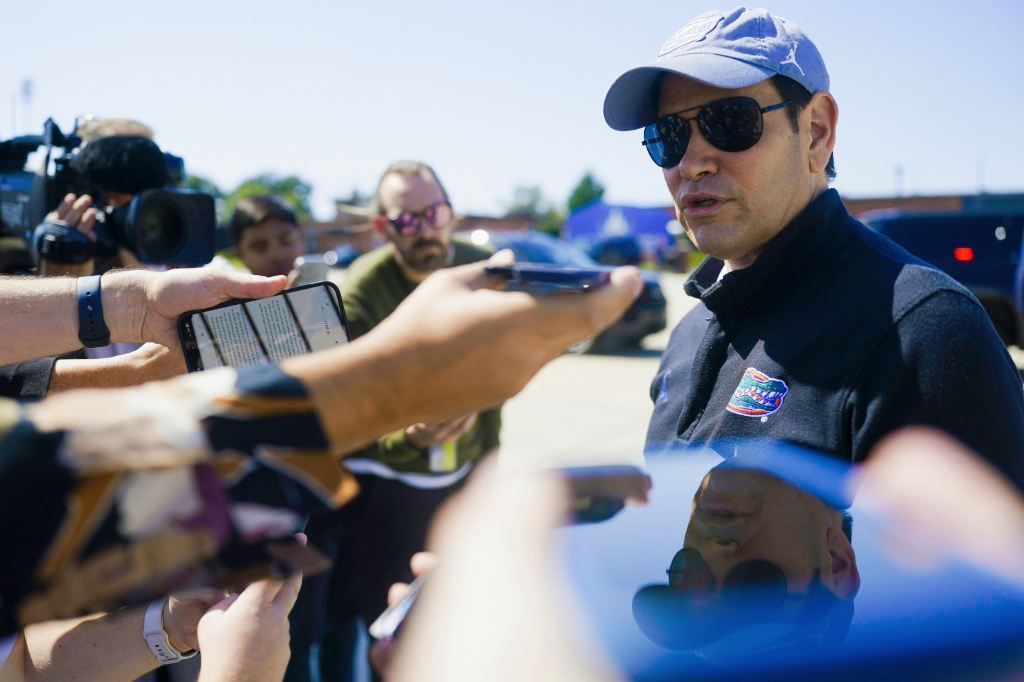Days after the Israeli strikes targeting Hamas leaders in Qatar that sparked anger in Doha, U.S. Secretary of State Marco Rubio arrived in Israel this morning, September 14, in an important visit that renews Washington's support for Tel Aviv, despite the public criticisms from U.S. President Donald Trump.
Rubio, who is scheduled to meet with Israeli Prime Minister Benjamin Netanyahu and several senior officials, confirmed before his departure that U.S. support for Israel would not change due to the strikes that caused tension with Washington's regional ally, Qatar.
These strikes, described by Trump and other international and regional parties as controversial, negatively affected efforts to reach a ceasefire and release hostages in the Gaza Strip, especially since Qatar plays a pivotal role in the indirect negotiations between Israel and Hamas, and Khalil al-Hayya, head of the Hamas negotiating delegation, survived the bombing.
Rubio's visit comes amid an Israeli military escalation in northern Gaza, against a backdrop of increasing international pressure on Tel Aviv, and ahead of the United Nations General Assembly meetings that will witness recognition of a Palestinian state by several Western countries, a step that Israel and the United States strongly oppose.
Rubio stated in his remarks to reporters that the disagreement over the attack on Qatar would not change the nature of the relationship with Israel, but he noted the need to discuss its impact on efforts to calm the conflict that erupted on October 7, 2023.
He added: "Ultimately, there is a group called Hamas that still exists."
Qatar, along with the United States and Egypt, is a key party in mediating a ceasefire in Gaza, and Doha has hosted several rounds of indirect negotiations between Hamas and Israel.
For his part, Israeli Prime Minister Netanyahu defended the strikes targeting Hamas leaders, considering that eliminating them would pave the way for ending the war, and accused them of obstructing all attempts to ceasefire to prolong the conflict.
However, he faced criticism from the Hostages Families Forum, which described Netanyahu as the "main obstacle" to releasing the captives and ending the war.
Amid the Israeli military escalation, which includes a plan to control the densely populated city of Gaza, the United Nations and the international community warned of worsening humanitarian crisis in the enclave, where the international organization officially declared a state of famine last month, amid widespread displacement of civilians.
Western countries, led by France and Britain, are also preparing to recognize a Palestinian state during the United Nations meetings, in a move calling for reviving the two-state solution, which is supported by 142 countries in the General Assembly against 22 countries that rejected or abstained, amid strong Israeli and American opposition.
U.S. State Department spokesperson Tommy Pigott confirmed that Washington would continue to confront actions it considers hostile to Israel, including unilateral recognition of a Palestinian state that could enhance Hamas's role.
The attack launched by Hamas on Israel in October 2023 resulted in the deaths of 1219 people, mostly civilians, while Israel responded with a military campaign in the Gaza Strip that resulted in the deaths of more than 64,800 people, mostly women and children, according to the Gaza Ministry of Health.
As of now, 47 people are still held captive in Gaza, including 25 who have died, out of 251 abducted in the attack.
Rubio's visit reflects continued American support for Israel despite escalating regional and international tensions, at a time when the region is witnessing critical turning points in the course of the Israeli-Palestinian conflict.

